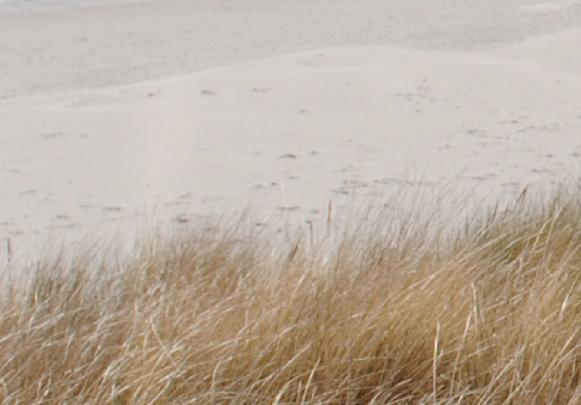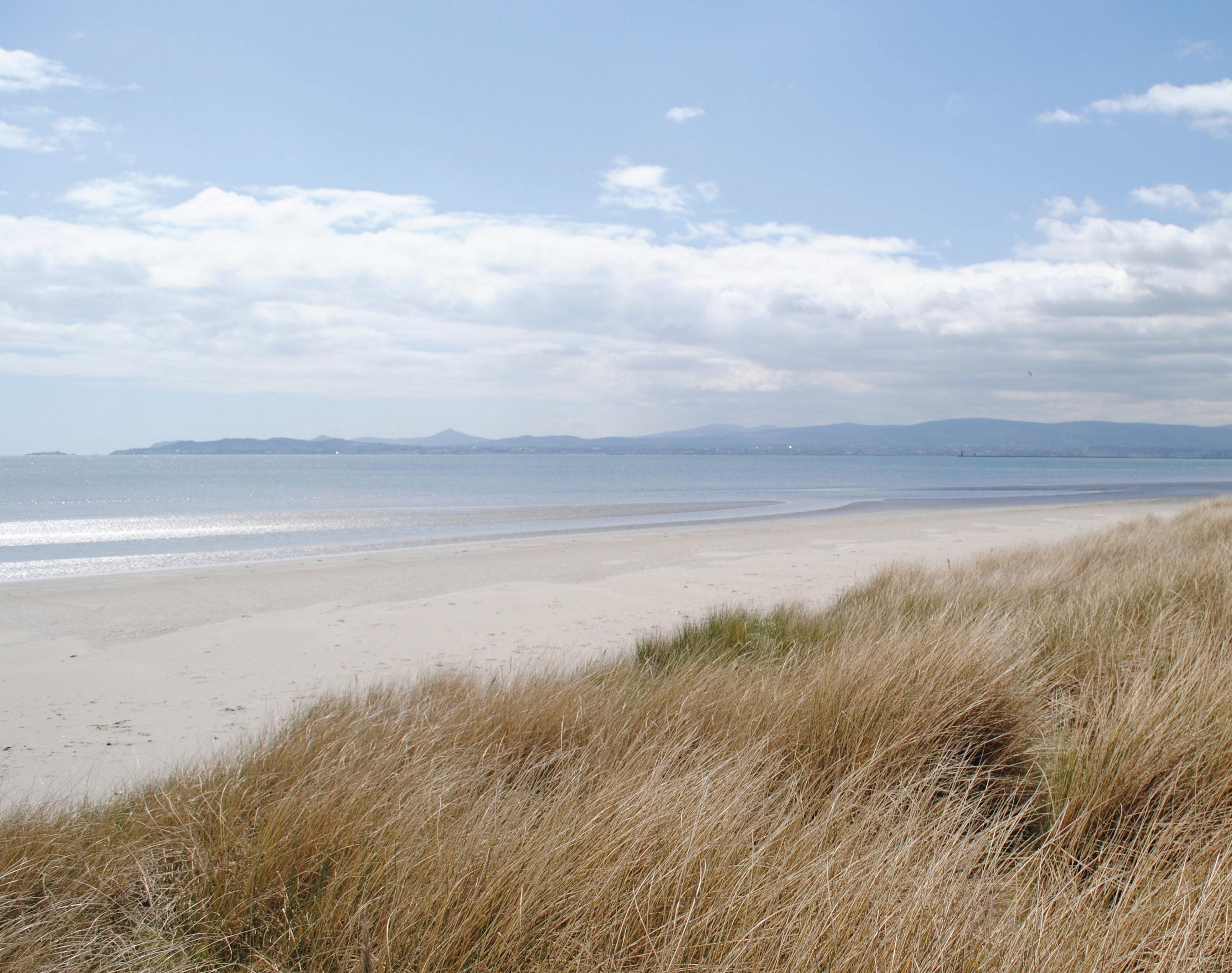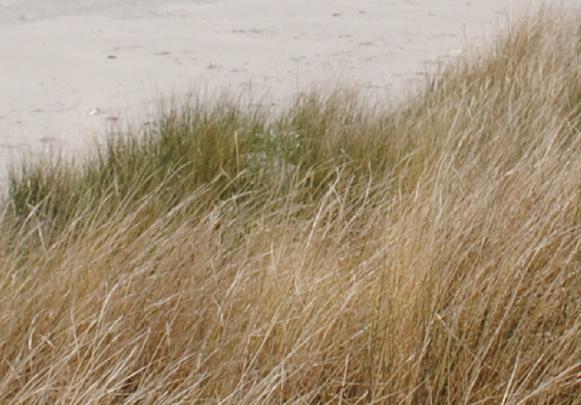
5 minute read
THE HEART OF WILD DUBLIN



wild Dublin
As a cherished protected biosphere, recreational activities must be managed at Bull Island to ensure habitats aren’t damaged, writes DONNA COONEY
Most Dubliners are very familiar with Bull Island and many know that it is part of the Dublin Bay UNESCO biosphere, but most of the public are not aware that it is the most protected site for nature in Ireland. This Special Protection Area (SPA) has 18 priority species under the Birds Directive!
The National Parks and Wildlife Service (NPWS) published its Conservation Objectives for the North Bull Island SPA in 2015. Who is responsible for implementing these objectives? Dublin City Council is the Local Authority that manages the island under its Parks section but European and national legislation places a collective obligation on Ireland and its citizens to maintain habitats and species in the Natura 2000 network at a ‘favourable conservation condition’. The Government and its agencies are responsible for the implementation and enforcement of regulations that will ensure the ecological integrity of this site.
Dublin City Council has drafted a management plan for the next five years and an oversight forum for the implementation of the North Bull Island Action Plan has been established and has met twice to-date. The forum includes various stakeholders including Birdwatch Ireland, An Taisce Clean Coasts, the NPWS, Bull Island Action Group, Irish Seal Sanctuary, Councillor’s chair and vice chair of North Central, Dublin Naturalists’ Field Club, a number of residents’ groups, Port Scouts, Dublin City Council parks officials, head of parks and biodiversity officer and other recreational users.
There is a real need to inform the public of the importance of Bull Island as a protected biosphere and to manage recreational use so that habitats are not damaged. In 2020 ground nesting birds returned to North Bull Island, but were nearly destroyed by fires on the dunes. There have already been fires in the most sensitive sites on the northern dunes this year. More people than ever are enjoying the outdoors and being close to nature and Bull Island is a wonderful amenity for Dublin’s citizens and visitors. As the only capital in the world with a designated UNESCO biosphere, it’s truly a unique space.
The oversight forum has looked at some of the management challenges around balancing people and nature and maintaining natural processes (such as the hydrology of the island and intertidal area and the conservation of rare habitats and species, including the management of invasive alien species).
Issues that need addressing are the impacts of recreational disturbance on wildlife caused by people letting their dogs off leads, which is damaging habitat in the dunes and disturbing

seals and their pups on the northern end of the strand. There is also an urgent need to protect the dunes from the dangers of barbeques and parties, leading to littering and fires on the dunes.
Access has also recently become an issue, with huge numbers of people trying to access the island daily throughout the year. There is simply not the capacity to accommodate the number of cars seeking to park, leading to some recreational users looking for parking on the northern causeway entrance on the beach.
Since cars were removed from the strand, aerial imagery was taken which outlined changes to the landscape as a result of natural processes and policy changes. This led to improvement of the dunes, something that would be reversed if cars were to gain access again to the strand on the northern causeway end of the island.
Another issue of concern is the speed limit of 50km per hour on the causeway, making it dangerous for active transport users. This should be reduced by using by-laws to 20kmph or 15kmph. Some measures have been taken to facilitate active transport users, with the
Gray seal

creation of a temporary shared segregated greenway on the causeway and bollards put in along the bull wall to protect people from cars that had been parking and driving on the walkway. Also, universal access to the beach is to be created with the use of removable walkways on the strand.
Water quality is also of concern, with tests results showing poor water quality from November 2020 to April 2021. This is not only of concern for public health with large numbers of year-round sea swimmers, but also for marine life. An expert group on bathing water quality has been set up by the Department of Housing, Local Government and Heritage and the Minister has stated they will review the request for an extension of the bathing season and more frequent testing and reporting of water quality.
Beach cleaning must be carried out carefully by hand on the dunes. Volunteers from Bull Island Action Group, along with others, regularly fulfil the task. Litter endangers wildlife and dog foul is also prevalent on the dunes. Dublin City Council is proposing litter reduction measures by removing the temporary barrel bins from Bull Island. They are adopting a ‘leave no trace’ policy and seeking to influence public behaviour. Large recycling bins will also be placed at both entrances.
There remain some key challenges at the interface between people and nature, notably recreational impacts, car parking and dogs. Other challenges include groups gathering on the Island, anti-social behaviour, fires, emergency services access and increasing numbers of cetacean stranding (including a fin whale in November 2019 and two separate harbour porpoises in May 2020 and April 2021 washed up on Dollymount strand). Practices and protocols will need to be reviewed and implemented in relation to the above.
Some approaches are being explored to address these challenges including codes of conduct with recreational groups, zonings for wildlife-only spaces, signage strategy, education and awareness programmes and a Bull Island conservation volunteer programme. Donna Cooney is a Green Party Councillor for the Clontarf area of Dublin which includes Bull Island.










